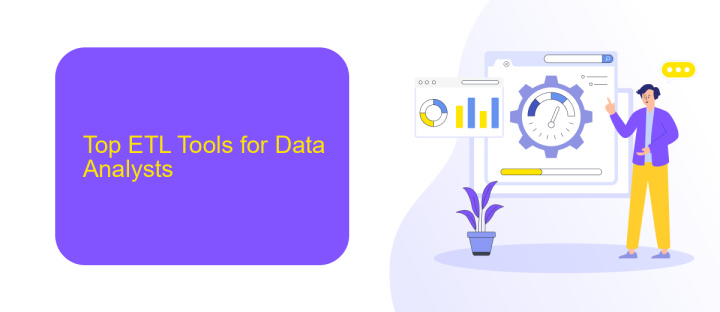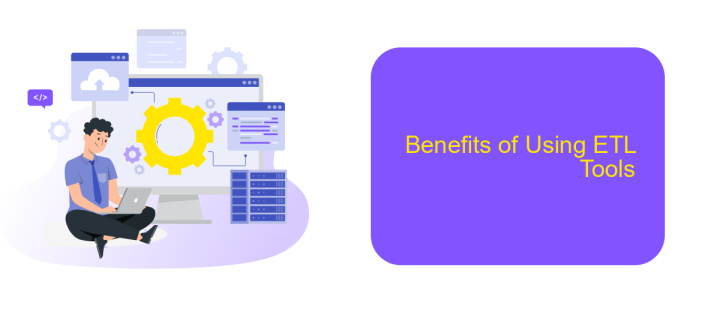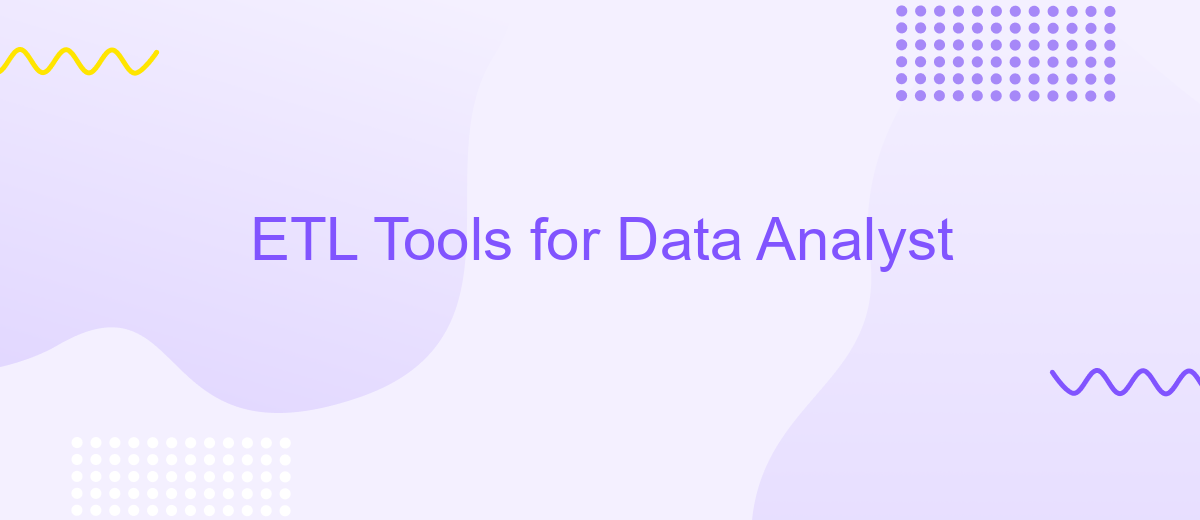ETL Tools for Data Analyst
ETL (Extract, Transform, Load) tools are essential for data analysts to efficiently manage and manipulate data. These tools facilitate the extraction of data from various sources, its transformation into a usable format, and its loading into data warehouses. By leveraging ETL tools, data analysts can streamline workflows, ensure data accuracy, and gain valuable insights to drive informed decision-making.
Introduction
ETL (Extract, Transform, Load) tools are essential for data analysts who need to efficiently manage and analyze large datasets. These tools help streamline the process of extracting data from various sources, transforming it into a suitable format, and loading it into a data warehouse or other storage systems. With the growing complexity of data environments, choosing the right ETL tool is crucial for effective data analysis.
- Data Extraction: ETL tools can connect to multiple data sources, including databases, APIs, and cloud services.
- Data Transformation: These tools offer capabilities to clean, filter, and aggregate data to meet specific analysis requirements.
- Data Loading: ETL tools ensure the transformed data is efficiently loaded into the target storage system, maintaining data integrity and consistency.
One notable service that aids in the integration process is ApiX-Drive. This platform simplifies the connection between various applications and services, making it easier for data analysts to automate data workflows without extensive coding. By leveraging ETL tools and integration services like ApiX-Drive, data analysts can focus more on deriving insights rather than managing data pipelines.
Top ETL Tools for Data Analysts

When it comes to ETL (Extract, Transform, Load) tools for data analysts, several options stand out due to their efficiency and user-friendly interfaces. Apache Nifi is a powerful tool that provides a robust and scalable data flow management system. Its drag-and-drop interface makes it accessible for users with varying technical skills. Another popular choice is Talend, which offers a comprehensive suite of data integration and transformation tools. Talend's open-source nature and extensive community support make it a go-to for many data professionals.
For those looking for a cloud-based solution, Google Dataflow is an excellent option. It provides real-time data processing capabilities and seamless integration with other Google Cloud services. Additionally, ApiX-Drive is a noteworthy mention for automating data integrations. ApiX-Drive allows users to connect various applications and services without needing extensive coding knowledge, making it ideal for streamlining ETL processes. These tools collectively empower data analysts to efficiently manage and transform data, enabling more insightful and actionable analytics.
Features to Consider When Choosing an ETL Tool

When selecting an ETL tool, it's crucial to evaluate various features to ensure it aligns with your data processing needs. The right ETL tool can significantly streamline your data workflows, making your analysis more efficient and accurate.
- Scalability: Ensure the tool can handle increasing data volumes as your business grows.
- Integration Capabilities: The tool should seamlessly integrate with your existing data sources and destinations. Tools like ApiX-Drive are excellent for setting up integrations effortlessly.
- Ease of Use: A user-friendly interface is essential for quick adoption and efficient use by your team.
- Performance: High performance in terms of data processing speed and reliability is critical.
- Security: Robust security features to protect sensitive data are non-negotiable.
- Cost: Evaluate the cost-effectiveness of the tool, considering both upfront and ongoing expenses.
By carefully considering these features, you can choose an ETL tool that not only meets your current requirements but also scales with your future needs. A well-chosen ETL tool can be a game-changer in your data analysis workflow.
Benefits of Using ETL Tools

ETL tools offer numerous advantages for data analysts, streamlining the process of extracting, transforming, and loading data. By automating these tasks, ETL tools save time and reduce the likelihood of human error, ensuring more accurate and reliable data analysis.
One of the key benefits of using ETL tools is the ability to handle large volumes of data from multiple sources. This capability is crucial for businesses that rely on diverse datasets to make informed decisions. ETL tools also enhance data quality by cleaning and standardizing data, making it easier to analyze and interpret.
- Improved data accuracy and consistency
- Time-saving through automation
- Scalability to handle large datasets
- Enhanced data integration from multiple sources
- Better data governance and compliance
Moreover, services like ApiX-Drive facilitate seamless integration between various applications and data sources, further simplifying the ETL process. By leveraging such tools, data analysts can focus more on deriving insights and less on managing data workflows, ultimately driving better business outcomes.
Conclusion
In conclusion, ETL tools are indispensable for data analysts seeking to streamline the process of data extraction, transformation, and loading. These tools not only enhance efficiency but also improve the accuracy and reliability of data analysis. By automating repetitive tasks and integrating diverse data sources, ETL tools enable analysts to focus on deriving actionable insights rather than getting bogged down in data preparation.
Moreover, services like ApiX-Drive further simplify the integration process, allowing seamless data flow between various platforms and applications. This ensures that data analysts have access to up-to-date and consistent data, which is crucial for making informed decisions. As the demand for data-driven insights continues to grow, the adoption of robust ETL tools and integration services will remain essential for organizations aiming to stay competitive in today's data-centric world.
FAQ
What is an ETL tool and why is it important for data analysts?
How do ETL tools improve data quality?
Can ETL tools handle real-time data processing?
What are the key features to look for in an ETL tool for data analysis?
How can ETL tools be integrated with other applications for automation?
Apix-Drive is a simple and efficient system connector that will help you automate routine tasks and optimize business processes. You can save time and money, direct these resources to more important purposes. Test ApiX-Drive and make sure that this tool will relieve your employees and after 5 minutes of settings your business will start working faster.

